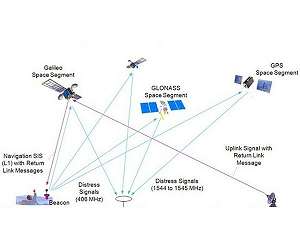GSA launches testing campaign for agriculture receivers
The GSA is launching a new testing campaign for receiver manufacturers: The machine guidance testing campaign for agriculture receivers.
Within this testing campaign, receivers usually used for machine guidance tasks will be thoroughly tested for their performance in various test cases, looking at multi-constellation and multi-frequency combinations and using several augmenting techniques.
Given the accuracy requirement differential between machine guidance and automatic steering applications, less demanding applications from the point of view of accuracy will be the primary focus. However, independently from the application accuracy requirement, the relative (so called ‘pass-to-pass’) and more importantly absolute accuracy of the receiver will also be evaluated.
In order to enable a fair comparison between the receivers and to prevent another error source from machine guidance subsystems, the campaign will only focus on the GNSS accuracy part and not on the machine guidance systems as a whole.
Added value for manufacturers
The testing campaign is targeting agriculture receiver manufacturers looking for an independent assessment of Galileo implementation into their products, and assistance with any issues linked to this implementation.
Manufacturers stand to benefit from the independent testing – the GSA will conduct neutral test cases and provide objective results. The campaign is also completely free to the manufacturers. It aims to support the industry in implementing Galileo in their receivers. Based on the testing, the manufacturer will receive a confidential comparative analysis of the results with anonymised partial results of the others.
Requirements for the receivers
In order to assess the correct implementation of Galileo, the receivers under testing should have the capacity to enable and disable specific GNSS constellations and frequencies, be able to function in Galileo-only mode and, ideally, support SBAS, RTK and PPP positioning modes. During the tests the receivers should also be able to provide information on position, the number of tracked satellites and DOP values, as NMEA output.
Timeframe
The testing campaign is planned to start in June 2019 and will run at least until the end of the year. However, as the receivers will all be tested at the same time, it is necessary to have them shipped by 17 May 2019.
How to apply
Interested receiver manufacturers are invited to send an email to market@gsa.europa.eu, with the subject Galileo testing campaign of machine guidance receivers, indicating their interest in participating.
Source: European GNSS Agency (GSA)
Related Links
European GNSS Agency
GPS Applications, Technology and Suppliers
|
We need your help. The SpaceDaily news network continues to grow but revenues have never been harder to maintain. With the rise of Ad Blockers, and Facebook – our traditional revenue sources via quality network advertising continues to decline. And unlike so many other news sites, we don’t have a paywall – with those annoying usernames and passwords. Our news coverage takes time and effort to publish 365 days a year. If you find our news sites informative and useful then please consider becoming a regular supporter or for now make a one off contribution. |
||
|
SpaceDaily Contributor $5 Billed Once credit card or paypal |
SpaceDaily Monthly Supporter $5 Billed Monthly paypal only |
|

![]()
CGI and Thales sign contract for secure Galileo satellite navigation services
Rotterdam, Netherlands (SPX) May 03, 2019
CGI has signed an agreement with Thales Alenia Space France to enhance and maintain security software for the Galileo satellite navigation system. Valued at approximately 14 million euros, the contract will last until the end of 2020. CGI experts are working on this strategic project from Rotterdam and Toulouse.
CGI will improve the functionality, robustness and reliability of Galileo’s ground infrastructure, as well as enhance and maintain software for its Public Regulated Service Key Management … read more
